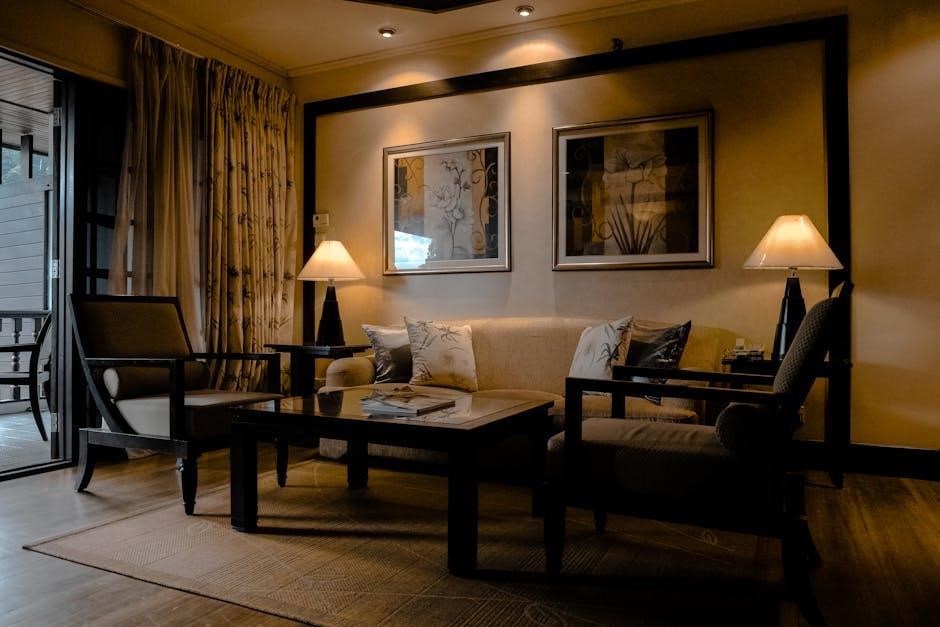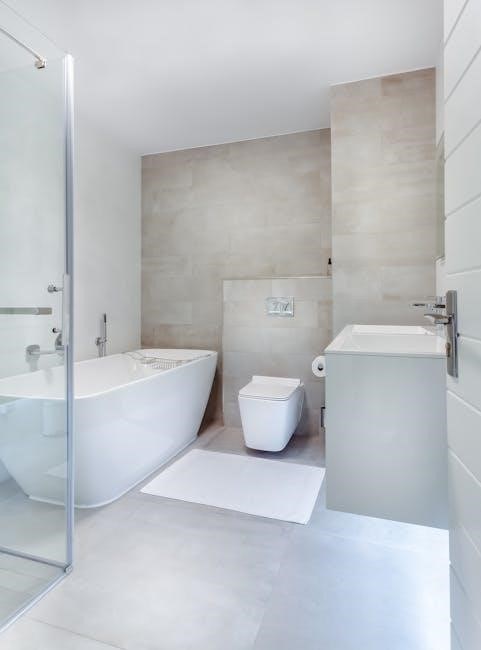hotel channel guide
- Published
- in Guide
Navigating the world of hotel management can be complex․ This guide simplifies online distribution, maximizing bookings and streamlining operations․ Discover key benefits and why it’s essential for effective hotel management․ Learn how a hotel channel manager simplifies online distribution, maximizes bookings, and streamlines operations․
What is a Hotel Channel Manager?
A hotel channel manager is a software solution designed to streamline a hotel’s online presence across various booking platforms; These platforms include Online Travel Agencies (OTAs) like Expedia and Booking․com, and Global Distribution Systems (GDSs)․ By synchronizing inventory, pricing, and reservations in real-time, it ensures consistency across all channels․
Think of it as a conductor of an orchestra․ It takes all the moving parts—your room inventory, prices, and availability—and keeps them in harmony across all the platforms where your guests are searching․ Instead of trying to keep up with every website, it handles the heavy lifting․
It connects your hotel to different booking websites, letting you update information, prices, and availability all in one place․ Instead of logging in to each site individually, a channel manager makes it easy to control everything from a single dashboard, offering an alternative to direct bookings for efficient management․

How Hotel Channel Management Works
A hotel channel manager operates by connecting multiple distribution channels and integrating them with the hotel’s Property Management System (PMS)․ The PMS provides the channel manager with up-to-date data about bookings, pricing, and hotel availability․ This connection allows for real-time synchronization of information across all platforms․
When a guest books a room on one website, the channel manager automatically updates availability across all other platforms․ This functionality reduces the chances of double bookings and saves you from doing the updates manually․ It’s like having an assistant that keeps everything in order for you․
The channel manager employs a pooled inventory system․ This system ensures that room availability is automatically updated across all online distribution channels, including the hotel’s website, metasearch engines, and partnerships with travel agents․ This synchronization prevents accidentally selling the same room to multiple guests, which reduces cancellations․
Key Features of a Hotel Channel Manager
A key feature is real-time synchronization․ This ensures that inventory and rates are updated instantly across all connected channels, preventing overbookings and discrepancies․ Another important feature is centralized management, allowing users to control all distribution channels from a single dashboard, streamlining operations and saving time․
Effective channel managers offer robust reporting and analytics․ These tools provide insights into channel performance, booking trends, and revenue generation, aiding in informed decision-making․ Integration with Property Management Systems (PMS) is crucial, enabling seamless data flow and automation of tasks like reservation updates and guest information management․
Channel managers should support dynamic pricing․ This functionality allows hotels to adjust rates based on demand, seasonality, and market trends, maximizing revenue potential․ Comprehensive channel coverage is essential, connecting to a wide range of Online Travel Agencies (OTAs), Global Distribution Systems (GDS), and metasearch engines to broaden reach․

Benefits of Using a Channel Manager
Using a channel manager offers numerous benefits for hotels․ One of the most significant is the elimination of overbookings․ By automatically updating availability across all channels, hotels avoid the risk of selling the same room twice, enhancing guest satisfaction and preventing potential revenue loss․ Streamlining administration is another key advantage․
A channel manager automates many manual tasks, such as updating rates and inventory, freeing up staff to focus on guest service․ Increased visibility and bookings are also major benefits․ By listing the hotel on multiple online travel agencies (OTAs), the channel manager broadens its reach to potential guests, leading to higher occupancy rates and increased revenue․
Channel managers facilitate dynamic rate management․ Hotels can adjust room rates in real-time based on demand, seasonality, and competitor pricing, optimizing revenue potential․ Furthermore, integration with other hotel systems, such as property management systems (PMS), ensures smooth data flow and efficient operations, contributing to better overall management․
Dynamic Rate Management
Dynamic rate management is a crucial benefit of using a hotel channel manager․ It allows hotels to adjust their room rates in real-time based on various factors such as demand, seasonality, and competitor pricing․ This flexibility ensures that the hotel can maximize its revenue potential by capturing every opportunity to optimize rates․
During peak seasons or local events, hotels can increase their prices to capitalize on higher demand․ Conversely, during slower periods, they can offer discounts to attract budget-conscious travelers․ With real-time updates across all booking platforms, these pricing changes are instantly reflected, ensuring that the hotel remains competitive and responsive to market conditions․
This capability to dynamically adjust rates is essential for staying ahead in the competitive hospitality industry․ It enables hotels to adapt quickly to changing market dynamics and optimize their profitability by aligning pricing strategies with current trends and demand patterns, ultimately leading to increased revenue and occupancy rates․
Increased Visibility and Bookings

A significant advantage of using a hotel channel manager is the increased visibility it provides for your property across multiple online booking platforms․ By listing your hotel on various channels like TripAdvisor, Expedia, Booking․com, and Airbnb, you significantly broaden your reach to potential guests․ A channel manager ensures that your inventory is consistently available on these sites, making it easier for travelers to find and book your rooms․

The more booking channels you utilize, the wider your audience becomes, leading to increased hotel room bookings and reduced vacancy rates․ This expanded presence not only attracts more potential guests but also enhances your hotel’s overall visibility in the competitive online marketplace․
By maintaining a consistent and up-to-date presence on multiple platforms, you increase the likelihood of attracting a broader range of travelers, ultimately resulting in higher occupancy rates and improved revenue for your hotel․ Increased visibility directly translates to increased bookings and a stronger online presence․
Eliminating Overbookings

One of the most critical benefits of a hotel channel manager is its ability to eliminate overbookings, a situation that can lead to guest dissatisfaction and damage your hotel’s reputation․ Overbookings often occur when room availability is not accurately synchronized across all booking platforms, resulting in the same room being sold to multiple guests․

A robust channel manager addresses this issue by utilizing a pooled inventory system․ This system automatically updates room availability in real-time across all online distribution channels, including your hotel’s website, metasearch engines, and partnerships with travel agents․ When a booking is made on one platform, the channel manager instantly adjusts the availability on all other connected channels, preventing double bookings․

This synchronization ensures that you don’t accidentally sell the same room to multiple guests, reducing cancellations and maintaining smooth day-to-day operations․ By eliminating overbookings, you enhance the guest experience, protect your hotel’s reputation, and avoid the costly consequences of relocating guests or offering compensation․
Streamlining Administration
Managing hotel bookings manually across multiple platforms is time-consuming and prone to errors․ A channel manager automates these updates, saving you valuable time and reducing mistakes․ This allows you to focus on providing exceptional service to your guests instead of spending hours juggling inventory and rates․ A channel manager simplifies the complexities of managing various online distribution channels, such as OTAs, GDSs, and your hotel’s website․
By centralizing the management of rates, availability, and content, the channel manager eliminates the need to log in to each platform individually to make updates․ This automation reduces the risk of human error, such as incorrect pricing or outdated availability, which can lead to lost revenue or dissatisfied guests․ This type of automation is essential for any connected channels distribution strategy, as it can significantly lower the risk of human error by reducing the need for manual updates․
Integration with Other Hotel Systems (PMS, etc․)
A channel manager works best when it integrates with your other hotel systems․ This creates a connected ecosystem where your operations, pricing, and guest data flow seamlessly․ Here are some other software solutions you will want your channel manager to plug into with ease: Property Management System (PMS), Central Reservation System (CRS), Revenue Management System (RMS), Customer Relationship Management (CRM), Online Booking Engine․
Integrating your channel manager with your PMS ensures real-time synchronization of reservations, room availability, and guest information․ This integration is crucial for avoiding overbookings, managing inventory accurately, and delivering a seamless guest experience․ A CRS integration allows for centralized management of rates and availability across all distribution channels, including your hotel’s website, OTAs, and GDSs․ This ensures consistent pricing and availability information, maximizing revenue opportunities․
Choosing the Right Channel Manager
When choosing a channel manager, look for one that integrates with the platforms you use most․ It should be easy to use and provide good customer support․ Test the software through a free trial or demo to see if it fits your needs before committing․ Don’t forget to pick tools with the right features! Here are the key features any channel manager for hotels should have: Room inventory management, Real-time updates, Connection to multiple channels, Reporting and analytics, User-friendly interface, Customer support․

Remember that a lot of industries may use channel managers, so you need to find one that specializes in property and room rentals․ Consider whether the channel manager offers integrations with your existing property management system (PMS) and other hotel software․ Check customer reviews and ratings to get an idea of the channel manager’s reliability and user satisfaction․
Pro Tips for Hotel Managers Using Channel Managers
Using a channel manager effectively can save you time and boost your bookings․ First, ensure the channel manager is set up correctly and integrated with your PMS․ Next, maintain accurate inventory and pricing across all channels․ Regularly monitor performance to identify trends and optimize your channel mix․ Provide training to your staff to ensure they can use the system effectively for seamless operations․
Set up alerts for low inventory or sudden changes in demand․ Utilize dynamic pricing to adjust rates based on market conditions․ Leverage reporting features to track channel performance and identify areas for improvement․ Regularly review and update your channel connections to ensure accuracy and efficiency․ By following these tips, you’ll maximize your hotel’s potential for revenue and guest satisfaction․ Knowing the ins-and-outs of popular channel managers is an essential hotel management skill in today’s digital world․

